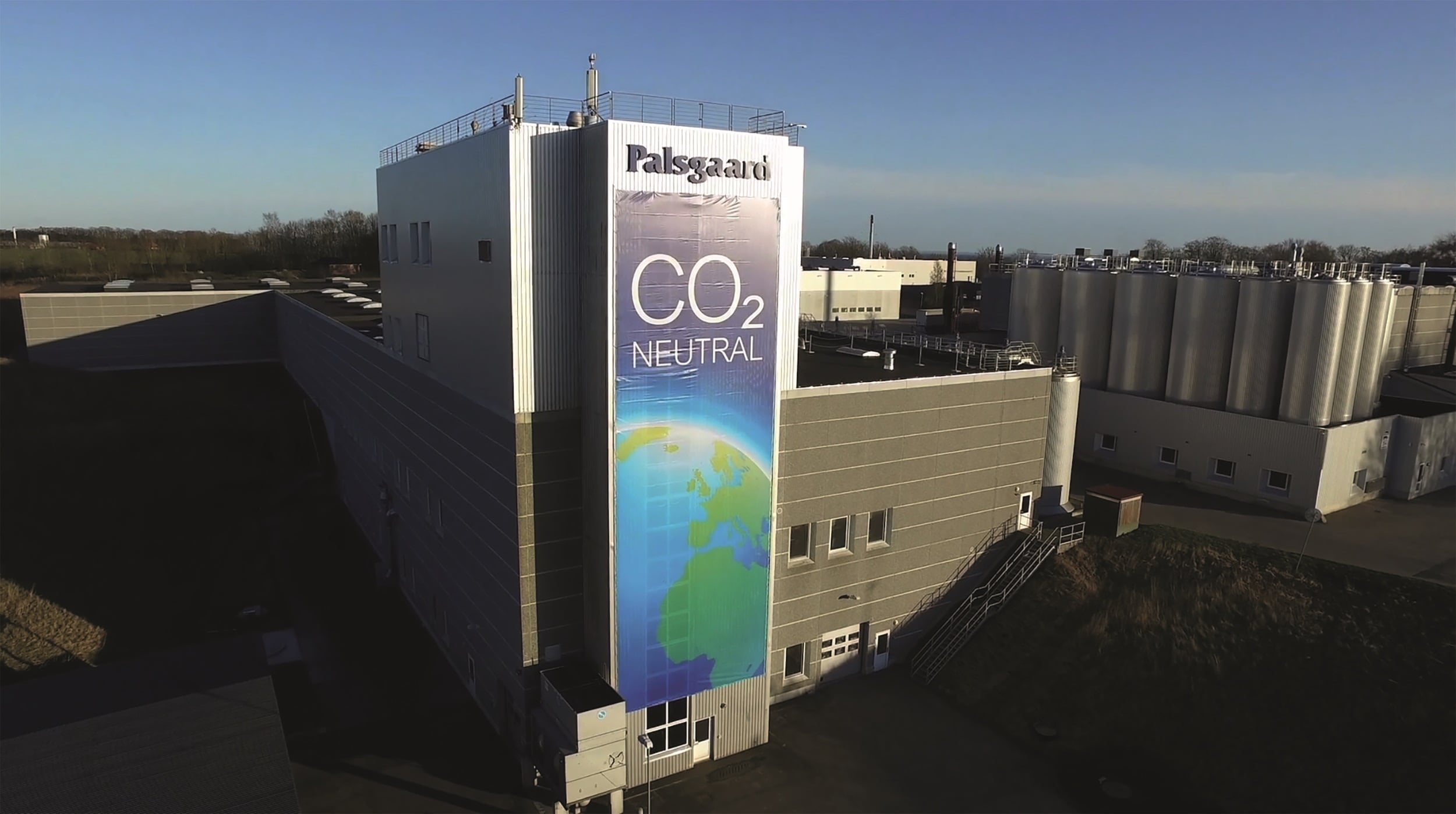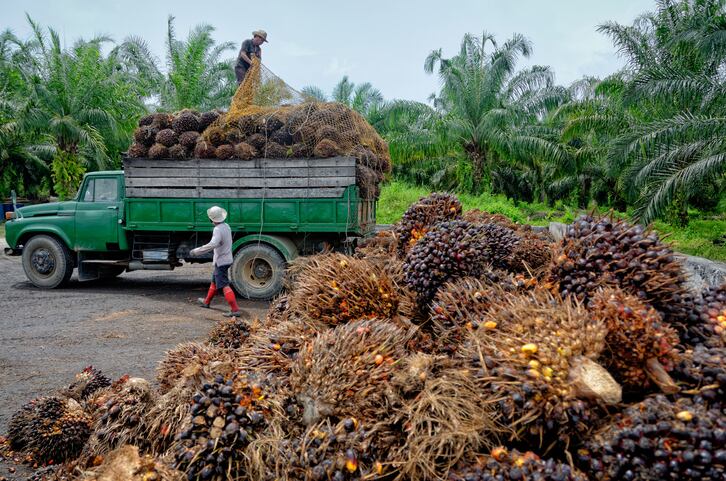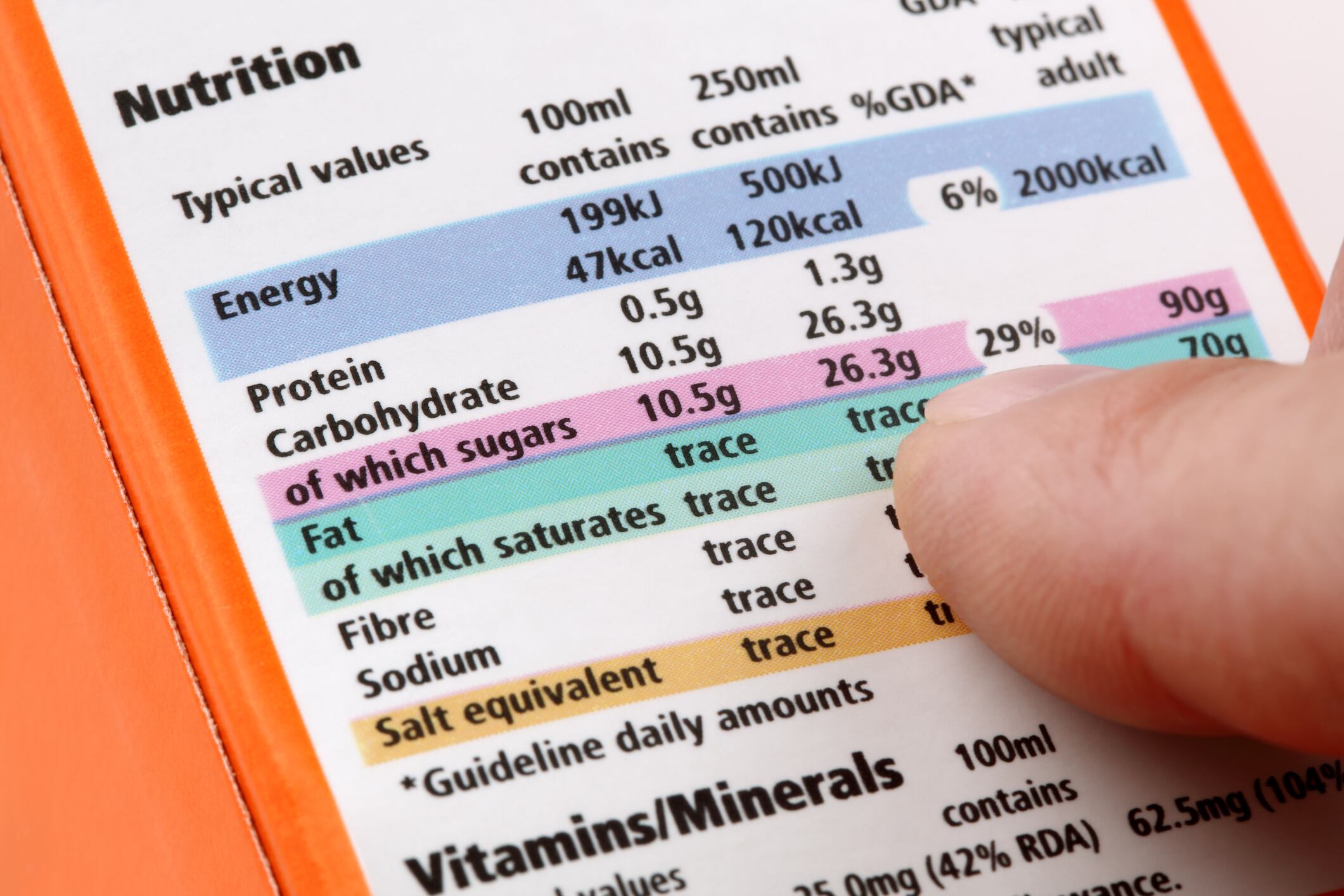Food ingredient suppliers report that their customers – led by growing consumer awareness – are integrating discussions around sustainability into their commercial negotiations.
“When we ask our customers to rank their concern about different issues, sustainability typically scores around nine out of ten,” Jakob Thøisen, CEO at Danish enzymes maker Palsgaard, told FoodNavigator.
Currently, many ingredient suppliers believe their efforts to promote sustainable production can be leveraged as a competitive advantage. “At the moment – because it’s still quite rare for companies to be taking real action – a credible sustainability story is a competitive advantage,” Thøisen continued.
But this, he suggested, is likely to evolve with the market. Soon ‘sustainability’ will be more of a hygiene issue – a pre-requisite for European businesses rather than a stand-out selling point. “Consumers are going to force companies to take action, and carbon neutral production, for example, will eventually become the norm rather than a differentiator,” Thøisen predicted.
Walking the walk
This means that ingredient manufacturers need to act now if they are to truly embrace sustainability and get out ahead of customer requirements, SVZ sustainability manager Inge van Disseldorp suggested.
“A strong sustainability story can be a great competitive asset, but only if a brand truly commits to environmentally and ethically conscious business practices. With climate change such a pertinent issue, many companies feel obligated to make some sort of comment on sustainability, yet only a relative few are fully integrating green policies into their development goals,” she noted.
“Thanks to an awareness of environmental issues, consumers are increasingly able to distinguish this mandated lip-service from sincerely practiced commitment to sustainability.”
Food colouring maker GNT also stressed that food ingredient manufacturers need to do more than talk the talk around sustainability. “This isn’t just for appearances; we really do walk the walk,” Maartje Hendrickx, market development Manager at GNT, claimed.
But what does this look like?
Talking about ‘sustainability’ in broad brushstrokes is challenging because it is such as massive, complex and interrelated subject. Nevertheless, some key topics are currently topping the agenda. The majority of these orbit the central question of how to combat climate change and biodiversity loss.
#1: Carbon footprint
With climate protests sweeping Europe, school children striking for climate change and now well-known activists like Greta Thunberg headlining at the agenda at the United Nations, it should come as little surprise that climate and carbon are high up the agenda.

Indeed, Palsgaard’s chief executive believes that carbon emissions are a defining issue for food businesses. The company, which recently revealed its operations have reached carbon neutral status, has been working to reduce its CO2 footprint since 2010.
“The biggest issue – in terms of the scale and urgency of the threat, and the degree of public concern – is climate change,” Thøisen observed.
“In 2010, we set ourselves the goal of completely carbon-neutral production within ten years. It’s a matter of great pride that we achieved that target in 2018 – two years ahead of schedule. Over that period, we reduced our net carbon emissions from 12,029 tonnes to zero, achieving reductions totalling 56,175 tonnes, which is the amount produced by 4,885 European households in a year.”
The milestone was hit thanks to a ‘range of different strategies’ including heat recovery and insulation techniques and a switch to renewable energy sources. “At our main site in Denmark, all electricity is sourced from hydro power, and indoor heating is powered by burning home-grown straw rather than oil,” Thøisen explained. And the company, which plans to double its production capacity, plans to simultaneously invest in a solar park to supply the additional power that will be needed.
Thøisen believes that being carbon neutral will become a more important touch-point with consumers and, as such, he suggested that developments like carbon labelling are actually not as opposed by the food industry as established wisdom would have us believe.
“Manufacturers’ concerns reflect those of their end consumers, and all the evidence is that carbon reduction is increasingly important to them. That’s also reflected in the industry response to action on carbon reduction, which is more positive than is sometimes assumed. Here in Denmark, for example, the government is talking about carbon labelling on food products, and that’s been generally welcomed by the industry.”
Carbon footprinting is about more than looking internally, to your own operations. It is also about measuring your indirect emissions up and down the chain.
This can be achieved through an integrated supply chain, according to GNT. “Such a high level of control enables us to provide our customers with reassurances about quality and security of supply. But it also means we can make our operations as sustainable as possible,” claimed Hendrickx.
“Take road transport as an example. Running vehicles below maximum load capacity is inefficient and results in unnecessary emissions. To address this, GNT has implemented an improved stacking pattern so we can transport 33% more volume per truck.”
#2: Plant-based consumption
Hendrickx suggested that GNT’s focus on plant-based ingredients also aligns it with consumer demand for products that contribute less to climate change.

“As a company that makes ingredients only from fruits, vegetables and edible plants, GNT is in a strong position in today’s market. Increasingly, our customers are looking to use plant-based ingredients because they know these have an intrinsic sense of sustainability that resonates with growing numbers of today’s socially-conscious consumers.”
Mikkel Thrane, DuPont’s head of global sustainability, believes that a consumption shift towards more plant-based diets is the action that could do most to move the needle on global heating.
“It is the most promising thing that has happened in the food space in terms of sustainability,” he told FoodNavigator. “Let’s look at it as a consumer. You can buy local versus imported foods, you can buy organic versus conventional, you can buy from a greenhouse versus open land, you can reduce food waste, you can eat chicken versus beef. But the thing that has the biggest impact is you can eat plant-based. It outperforms all the others.”
For Thrane, developing a sustainable food chain is not just about adjusting your existing operations, it is about where you focus investment and innovation.
“It is about what you do and how you do it. Big changes are necessary on the consumption and production side.” - Mikkel Thrane, DuPont
And the DuPont sustainability expert believes that an even bigger uptick in plant-based capacity will be needed if the food sector is to meet future requirements for sustainable sources of protein.
“For plant protein we are facing a challenge. In terms of the production capacity there will be bottlenecks in the next 10 to 15 years in parts of the industry to produce a protein concentrate. There is going to be a time in the next decade that the demand will be so big that the industry will have to adapt fast. It will be a struggle for industry to change as fast as we are seeing the demand change on meat free.”
#3: Raw material sourcing: palm and soy
The complex nature of international food chains means that commodities are sourced from across the globe. Some of these commodities are particularly in the spotlight, due to consumer awareness of deforestation, which is, in turn, a significant risk factor associated with global warming.
Palm oil is one such commodity.

With around 66 million tonnes produced annually, palm oil is the most common vegetable oil in the world. It is used in around half of all supermarket products, from pizzas to baked goods and spreads.
Palm oil plantations currently cover more than 27 million hectares of land globally. And, while it is a highly efficient crop, palm has faced a significant consumer pushback because of its associations with deforestation, habitat destruction and biodiversity loss.
Sustainable palm oil doesn’t necessarily deserve this bad reputation. Inke van der Sluijs, who heads up European operations at the Roundtable on Sustainable Palm Oil (RSPO), suggested.
Speaking at The Ingredients Show earlier this year, van der Sluijs explained: “Palm oil is four to 10 times more productive than other vegetable oils. So phasing out palm oil is not a sustainable solution. Replacing palm oil [with another commodity, such as coconut oil] would mean placing issues on other regions, on other communities, on other biodiverse areas.”
The high level of scrutiny palm oil comes under – which is a fair reflection of the deforestation risk it presents – means ingredients companies must ensure that their sustainable palm oil sourcing strategies are watertight.
“The most obvious example of an ingredient that requires responsible sourcing and rigorous supply chain scrutiny is palm oil,” Palsgaard’s Thøisen confirmed. “Where we use it, we use only RSPO-certified materials, and our complete product range is MB- or SG-certified. Furthermore, we ensure that every batch we use can be traced back to the mill it came from.”
As the stress growing production of key food commodities places on land-use is increasingly understood, other raw materials are being drawn into the public eye.
“Soy is going to be the next palm oil because the rate of deforestation in Brazil is going up,” DuPont’s Thrane predicted. “Industry really have to step up to avoid further deforestation and conversion of biodiversity rich land in Brazil.”
One option that some companies are pursuing is to remove controversial commodities like palm or soy from their products, he noted. However, this is not a solution Thrane favours. Like van der Sluijs, he stressed that the ‘problem’ in this scenario is that you have to replace the ingredient with something else.
At the same time, he continued, demand from other markets – particularly in Asia – where sustainability is not such a crucial issue will mean that deforestation will continue apace. The solution, he suggests, is to raise all boats by backing certification.
“We cannot just look the other way. We need to engage with the industry and influence them in a better direction instead of turning our back on it. Just apathy is not the solution. This is the best way forward as I see it. The most pragmatic way and the most efficient way.”




